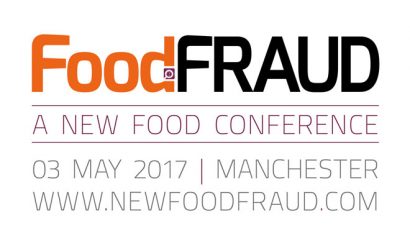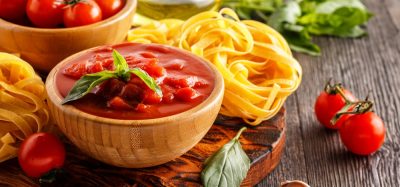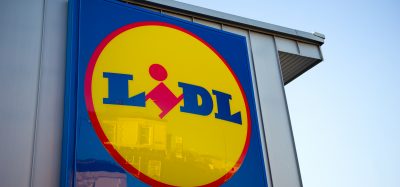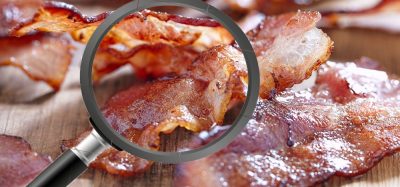Fighting Food Fraud in 2017 with Newcastle University
Posted: 20 April 2017 | Dr Diogo Monteiro (Newcastle University), Stephanie Anthony (New Food) | No comments yet
Fighting food fraud in 2017 will be no easy task. New Food Editor Stephanie Anthony speaks to Dr Diogo Monteiro Senior Lecturer at the Newcastle University for an insight.


Just how big an issue is food fraud at present in our industry?
I don’t work with a particular industry so I am not in a position to have a clear answer to this question. Besides, it is quite difficult to give a precise answer as by its own nature we only know about fraud when we find it. Then again, when we talk about fraud we need to distinguish its many types and forms. For instance tempering and adulterating food is a fraud but so is mislabelling. However, most people would be more concerned with adulteration than mislabelling, so along with a clear classification of types of fraud we need a hierarchy of these. Only then can we start mapping types and levels of fraud to food industries and start having an idea on how big an issue is fraud in each food sector.
When we talk about fraud we need to distinguish its many types and forms.
Now, one factor that may be linked to fraud is the transparency of food chains. More transparent industries may have less fraud because detection is easier. In my doctoral dissertation I investigated the economics of traceability in food chains. I would suggest that a supply chain with traceability will be more transparent. But what I have learned in my work is that most business in the supply chain have a very strong incentive to withheld information and thus most food traceability systems have gaps along the supply chain. This is because the more businesses expose their operations the lower is their bargaining power.
Moreover, gathering, registering and storing information is costly. The problem is that the more opaque is a supply chain the more likely is the opportunity for ill intended operators to engage in illegal activities. This opacity is likely associated to longer supply chains and to widespread sub-contracting. However, to best the of my knowledge there aren’t many studies (if any at all) examining how the structure of supply chains is related to different types of fraud. I am looking forward to learn from industry leaders and academics in the Food Fraud Conference what they know on this respect.
What sort of solutions might we need to consider?
As a food economist with over 20 years of experience work in different capacities on food quality valuation and assurance issues, I believe we need to look at the incentives and opportunities to defraud. As indicated in my answer transparency and quick diffusion of information about agents involved in fraudulent activity is one of the ingredients of program to deter food fraud.
In my experience most agents in the food chain are quite honest and will not be involved in fraudulent activities. From the economics of crime we know that if we either increase monitoring or the punishment for illegal activity there is a good chance of reducing crime levels. In a recent study, with colleagues from France and USA, we conducted an experiment that investigated how could we deter fraud in a mislabelling context. We found that even when there wasn’t any control and there were a lot of players in our experiment the rate of fraud was about 60%. When we introduce increasing levels of monitoring and a corresponding punishment, then fraud decreases significantly to about 20%.
We need to look at the incentives and opportunities to defraud.
This suggest two things:
- There is a significant number of agents that never engage in fraud.
- There is always a residual number of agents that even with high probability of being caught will still fraud. Now monitoring is costly and the judicial system is not perfect. Therefore we need to think about effective and efficient ways to reduce the incentives to fraud that may take into account what I call the propensity to fraud, that is the likelihood an agent will engage in fraudulent activities. One possible solution is to use risk based monitoring schemes that have been somewhat effective in food safety and emergent disease management. The idea behind this approach is that we identify what are the factors that mostly influence the decision to fraud and use those factors to get a food fraud risk profile by industry and agents within such industry. We can then make that profile available and transparent as well as a preventive alert system that focuses on those industries and agents that present higher fraud risk. The caveat is that the systems are dynamic so the risk profiles should be updated regularly to assure an effective management of fraud levels.
A more fundamental and difficult option is to examine what are structural causes of fraud. There may be cultural and moral causes along with socio-economic reasons for fraud, for instance injustices and inequalities in the supplier-buyer relations. Often we focus all our attention on the symptoms and fail to address the causes of the malaise. Long term solutions will inevitably need to consider these harder issues.
Why is the relationship between science and food so key to driving forward progress?
I think science provides a set of methods, instruments and tools to detect and manage fraud. Also, by the very nature of the scientific process it provides an objective and rigorous process to detect and control levels of fraud. As see it we need to use the word science in the broadest sense. We need to use knowledge from both natural and social sciences, as without understanding the human motivations to engage in fraudulent activities we will always be a step behind the fraudsters.
In any case we need to be aware that like any other human activity, science is not perfect. The tests and methods we use to detect and restrict fraud themselves have a rate of failure. Then the results need to be interpreted by humans, who are also subject to failure and bias. More sophisticated fraudsters will know this information and use it to their benefit. Moreover, we must not forget that science is also used by the fraudsters to get better at their activity. So science (in general) is fundamental to deter and mitigate fraud levels but we need to realise that it is also used to increase fraud levels.
It is an illusion to think we will ever get to zero level of fraud in food systems.
As I suggested in my answer to question 2 above, it is an illusion to think we will ever get to zero level of fraud in food systems. However, we can drive fraud to acceptable levels by a cleaver combination of knowledge, methods and processes from both natural and social sciences to create an environment where fraud is economically, socially and morally costly to those involved in this activity.
Imagine we are having this conversation in a year’s time in the run up to Food Fraud 2018… What do you predict will have changed?
I hope the forum this will enable us to start a broader conversation between industry, academia, public policy makers and consumer groups to not only improve our ability to detect and deter fraud but also to start addressing its fundamental causes. I am not very optimistic about these forums ability to lead to changes in the short run. I would be delighted if this forum could move the conversation to a discussion on the causes of fraud and what type of system we could put in place to disincentive fraud.
Why are events such as Food Fraud 2017 so important?
The importance of these events is they can bring together stakeholders and interest groups from different organisations and institutions in one place. This allows for people to exchange their knowledge and concerns and start conversations sharing experiences, ideas, insights and questions. These in turn will hopefully lead to projects investigating solutions to this important issue that we can discuss at future events.
Food Fraud 2017
As we look ahead to Food Fraud 2017 to be held at Manchester’s Renaissance Manchester City Centre Hotel on May 3, New Food Magazine brings you an exclusive interview series with some of the industry leaders speaking exclusively at the event.
For more information on Food Fraud 2017, click here.
Gavan Wafer, National Food Crime Unit
Eoghan Daly Crowe Clark Whitehill LLP
Related topics
Food Fraud, Food Safety, Quality analysis & quality control (QA/QC), The consumer, Traceability, Trade & Economy










